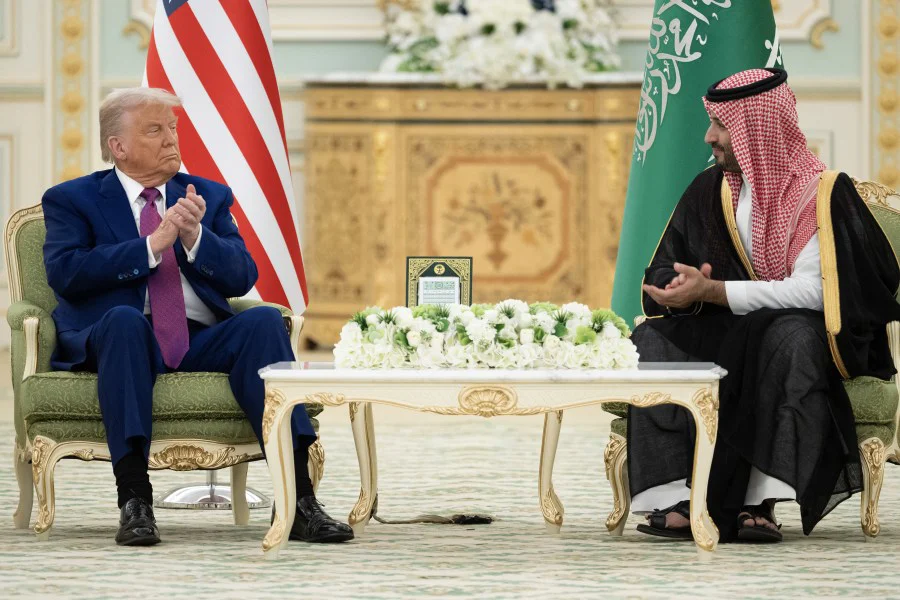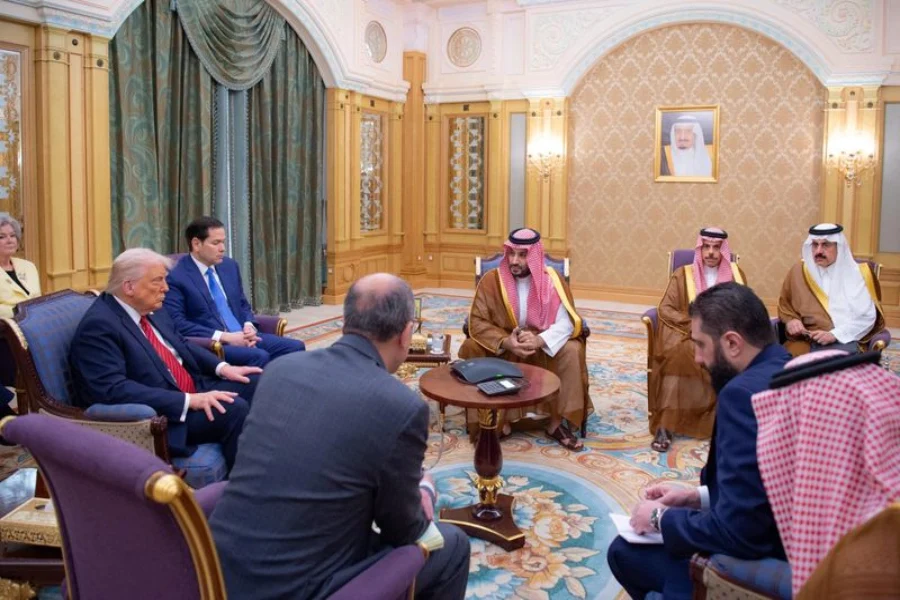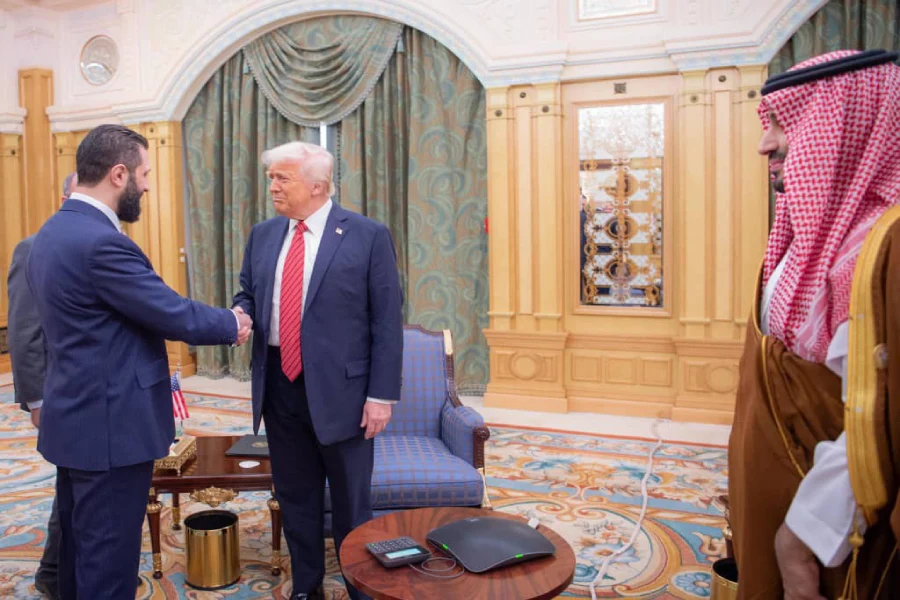In a historic and unexpected move, former President Donald Trump announced in May 2025 that the United States would lift all sanctions on Syria, ending more than four decades of economic restrictions. This unprecedented development comes after the fall of Bashar al-Assad and the appointment of interim President Ahmad al-Sharaa. The decision has sparked worldwide debate, especially regarding its political, humanitarian, and legal implications. This article analyzes the consequences of lifting the sanctions, with a focus on Syria’s path to reconstruction, international relations, and the legal framework under U.S. and international law.

Background: Sanctions and Their Impact on Syria
Syria had been under U.S. sanctions since 1979, originally due to its designation as a state sponsor of terrorism. These sanctions were progressively tightened, especially after the outbreak of the Syrian civil war in 2011. Bashar al-Assad’s regime was accused of war crimes, including chemical weapons use and human rights violations, leading to further international condemnation and economic isolation.
Sanctions effectively froze Syrian assets abroad, blocked financial transactions, banned exports and imports involving military or dual-use technologies, and severely restricted humanitarian aid transfers. While the original intention was to pressure the Assad regime, the unintended consequence was widespread suffering among the civilian population, with access to food, medicine, and rebuilding resources severely limited.
Political Turnaround in 2025
The political landscape of Syria shifted dramatically in late 2024 when Assad was ousted after a rapid offensive led by opposition forces. Ahmad al-Sharaa, once affiliated with Hayat Tahrir al-Sham but now positioning himself as a reformist leader, was appointed interim president. He promised to build a more inclusive government, emphasized reconciliation, and reached out to international powers for diplomatic recognition.
President Trump’s meeting with al-Sharaa in Saudi Arabia marked a turning point. Under pressure from Gulf allies and seeking to re-establish U.S. influence in the region, Trump announced that the U.S. would remove all sanctions on Syria. This statement shocked global observers and marked a major shift in American foreign policy.
Legal Analysis: Is the Lifting of Sanctions Justified?
From a legal standpoint, lifting sanctions involves complex domestic and international considerations.
U.S. Law and Executive Authority
Under the International Emergency Economic Powers Act (IEEPA), the President of the United States holds broad authority to impose or lift sanctions during a national emergency. In this case, President Trump had the legal power to reverse prior executive orders related to Syria.
However, critics argue that lifting sanctions on a country with ongoing instability and a controversial interim government may conflict with human rights norms and legislative expectations. U.S. Congress could potentially challenge the move if it is perceived as undermining national security or international human rights commitments.

International Law and Human Rights
Under international law, particularly within the framework of the United Nations Charter and customary international human rights law, sanctions must be proportionate, targeted, and consistent with humanitarian principles. While sanctions are a lawful means to pressure regimes, they should not indiscriminately harm civilian populations.
Human rights organizations have long argued that Syrian civilians suffered disproportionately under the sanctions regime. Thus, lifting sanctions could be justified legally and morally, provided the new Syrian government shows a commitment to justice, accountability, and reform.
Economic Impact: Opening the Door to Reconstruction
With sanctions lifted, Syria could now begin the long and difficult process of reconstruction. Estimates suggest the cost of rebuilding the country could exceed $400 billion. The absence of sanctions will make it easier for international aid agencies, NGOs, and foreign investors to contribute to rebuilding efforts.
Remittances from Syrians abroad—previously hindered by sanctions—can now flow more freely, offering economic relief to families struggling inside the country. New banking channels and trade agreements may re-emerge, reviving local industries and job markets.
However, these benefits are contingent upon the establishment of a transparent and inclusive political system. Investors will be wary of corruption, instability, and the influence of armed militias.
Regional and Geopolitical Reactions
Gulf and Middle Eastern Allies
Regional powers like Saudi Arabia, Qatar, and Turkey have welcomed the move, seeing it as an opportunity to stabilize Syria and reduce refugee flows. A peaceful and economically viable Syria could help counterbalance Iranian influence and create a buffer against future conflicts.
Russia and Iran
Russia and Iran, Assad’s main allies during the war, may feel sidelined by this shift. The U.S. lifting sanctions without their involvement signals a new alignment in the region. This could potentially lead to new negotiations or tensions depending on how the transitional government navigates its foreign policy.
European Union and the United Nations
The EU has so far expressed caution, waiting to see how Syria’s new leadership governs before adjusting its policies. The U.N. has supported the lifting of sanctions for humanitarian purposes but emphasized the need for accountability and transitional justice.
Social and Humanitarian Implications
The lifting of sanctions has been met with celebration inside Syria. Videos of fireworks, dancing, and waving Syrian flags in the streets of Damascus and Latakia went viral shortly after the announcement.
For families like that of Jumana Hayek in Aleppo, the change means they can now legally receive money from relatives abroad. This financial freedom, although modest, marks a significant step toward normalcy.
However, humanitarian agencies warn that structural rebuilding will take years. Over 13 million Syrians remain displaced. The country’s healthcare, education, and infrastructure systems are in ruins.
Risks and Challenges Ahead
The move to lift sanctions is not without risk:
- Transitional Governance: Al-Sharaa must prove he has truly reformed and can prevent extremism and sectarian violence.
- War Crimes Accountability: Victims and human rights organizations demand justice for crimes committed under Assad. The U.S. and international community may face pressure to ensure transitional justice mechanisms are established.
- Monitoring Compliance: Without sanctions as leverage, ensuring Syria complies with human rights norms and avoids further conflict becomes more challenging.
Conclusion
The lifting of U.S. sanctions on Syria marks a potentially transformative moment for the nation. Legally grounded in executive authority, and morally justified by humanitarian needs, the move offers a rare window of opportunity.
Yet, the real test lies ahead. If Syria’s new leadership can build a democratic and inclusive system, prioritize reconstruction, and guarantee rights and security for all citizens, this moment could mark the beginning of a true recovery.

